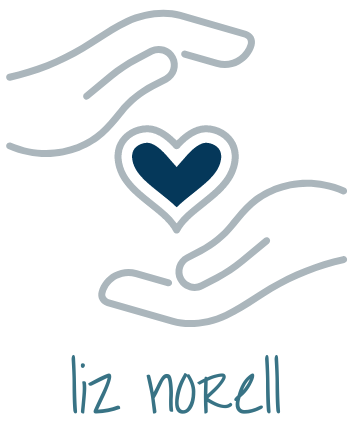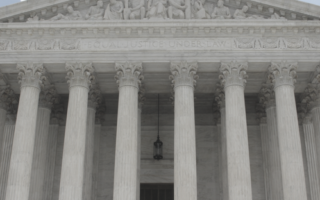
Whenever I pause to think about how fortunate I am to work at a community college, and then probably feel a little bit guilty that I’ve found a place that so thoroughly makes me feel the good feels that come when you do something you genuinely love … I have to remind myself that sometimes we fall into the right place, and other times, we decide to make the place we are the right place. There’s something powerful that happens when you decide to love where you are for all that it does provide you, even if it’s not where you thought you would be.
I feel that way. I never expected to have a full-time job at a community college, teaching section after section of American Government … but you know what? It’s the PERFECT place for me. I love my job. I love my students. I love my work. I love my coworkers. I feel insanely lucky that I get paid to do things that genuinely fill me up.
Today was one of those days. I had the chance to write a letter in support of a student who I admire tremendously. The students I meet in the community college setting are a diverse mix of dual-enrollment high school students, freshmen who have come straight from high school, and adults who are coming back to school after a few years — or even decades, and everything in between — out in the workforce.
This cauldron of diverse experiences means our conversations in class are richer, with more viewpoints represented, people who can share their lived truths in ways that resonate strongly with important themes in the study of government.
So when one of these students hits a bump along the path, I feel so fortunate to be one of the people there to help them move past it. I’ve written impassioned letters on behalf of many students in the past, and I feel a sense of satisfaction after each one, but there is a special kind of wonderful that happens when you can help someone who you know hasn’t had a lot of help in his or her life.
When I interviewed for my job at my current institution, the committee did not ask me the right question to elicit the answer I wanted to give, so I just demanded they let me give it anyway. It is the story of my single most rewarding moment as a teacher, one that still damn near moves me to tears, roughly 12 years later. I was teaching remedial college writing at a community college in Texas; after taking my class, my students were asked to write a persuasive five-paragraph essay, which a team of us would read (anonymously) to assess whether they were ready for college-level writing courses.
I had a student that semester who made significant improvement in her writing. At the beginning of the semester, I remember so clearly her coming to me after class one day and saying, “I don’t understand. I was a straight-A student in high school. How am I behind in college?” (This was the moment I decided No Child Left Behind was BS.) Once she figured out what we were looking for in an essay, she found a formula that worked for her to present her points clearly, forcefully, and proficiently. She used that same formula on her exit test, and both she and I were confident in her success.
And then … a heartbreaking call. The director of our writing program called to say that her essay and another student’s essay were nearly identical, and because the assessment team couldn’t be sure who was the original author, both students would fail. Adrenaline pumping, I asked him if I could provide him with examples of my student’s writing, as I was confident she had followed her formula on this exit essay. Within minutes, I emailed him a scan of her most recent essay.
A few days later, I was on campus, grading essays from other students, and that director came in with the plagiarized essay and the email I’d sent. The structure of the paragraphs (transition words, etc.) were identical. There was absolutely no question that she was its author. The other student eventually confessed to having found my student’s essay on the computer in the testing room, changing a few words, and submitting it as his or hers. Exoneration! Vindication!
But my sense of triumph turned into something far deeper when my student called me on my cell phone. She said, “I have NEVER had ANYONE fight for me like that. You are the first person who has ever believed in me. Thank you.”
………
I was stunned silent.
Can you imagine reaching the age of 18 (or greater) and having NEVER have someone fight for you? To feel like nobody has ever believed in you before? It breaks my heart. At the same time, being the person who could do that for her? It is a humbling experience, without a doubt.
These are the stakes we work with at a community college. Some of our students come through our door having been told their entire lives that they aren’t smart enough for school. They don’t know whether they will succeed. Some don’t even try, because if they try and fail, that seems like it would be worse than not trying at all.
But if we can inspire trust, and maybe even a spark of hope, and genuinely BELIEVE in the promise of our students? They can do magical things, and we then get to behold their magic. It’s like that old Henry Ford quote: “If you think you can, or you think you cannot, you are right.” If we believe in our students, and if we can somehow reach them enough to help them believe in themselves, they will be successful. It might not be the vision of success we had, but they will find their own success, their own path.
I’ve worked at public 4-year universities; I spent a year teaching at a private, liberal arts college. But despite what I might’ve told you a decade ago, I wouldn’t “trade up” from my job at the community college for anything — prestige, money, or a lower teaching load. As far as I’m concerned, I’ve got the best job in academia, and I’m grateful, daily, to have earned it. To spend time with my students is to spend time being humbled by their work ethic, grit, and hope.






